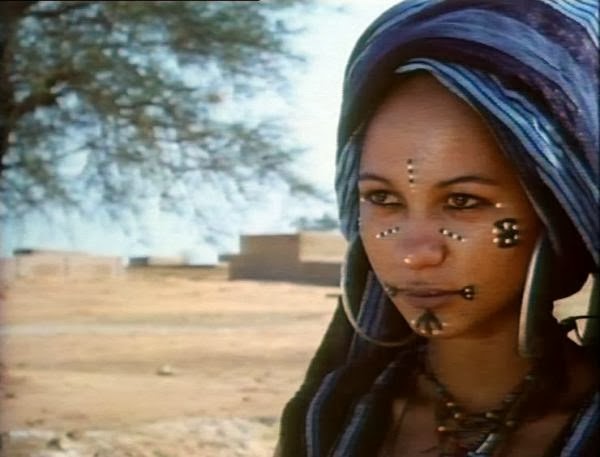Toula, or the Water Spirit (1974)
Niger is not a country usually associated with homegrown cinema. It is the world's second poorest country after the Democratic Republic of the Congo, despite being home to abundant uranium reserves (thank la France). Despite endemic poverty and corruption, Niger has managed to build a significant national cinema, and Moustapha Alassane was at the forefront of this development. Mostly known for his animated shorts starring toads, Alassane also directed quite a few live action features. Toula, or the Water Spirit, is one of his most well known, and one of only two available to purchase. Toula starts in modern-day Niger during a drought, and a young engineer has returned home from Paris to see his father. His father mocks the technology of the modern world, and proceeds to tell him a story from times long past. In a village of old, a drought had devastated the land, because the people did not pay their respects to the snake god of the lake. When the King goes to consult a fortune teller, he is told he must sacrifice his beloved niece, the most beautiful girl in the village, Toula to the snake god. Tragedy ensues. Despite being a narrative feature, Toula feels more like a documentary than anything else. More specifically, it is really a kind of ethnographic study, and while it succeeds in that area, it does not succeed at being gripping and compelling cinema. There is a barrier kept between the audience and the events on screen, and the characters are more archetypes than they are fleshed out human beings. Alassane at times hints at something deeper and more emotional; when Toula is told the snake god demands human blood, she speaks for the only time during the film in a kind of distorted echo. The fortune telling ceremony is rife with powerful imagery, and kinetic camerawork. One has to wonder which audience Alassane had in mind; was it his fellow countrymen? Or was it a western European audience? In a way, the frame story is more interesting than the actual film itself, because it touches upon the issues and challenges facing Nigeriens at the time, and their interpersonal relationships. Is the story a metaphor for colonialism (i.e. that the people have to "sacrifice" themselves to a cruel master)? Or is it just a simple fable? Either or, Toula very much fell short of expectations.


I would love to have a copy of this film! I just saw it, it deserves to be seen and to be preserved! Can you hook me up with a copy of it?
ReplyDeletemy email address is vzoadao@ gmail.com
DeleteI can offer some rare films in exchange that you won't find anywhere else!